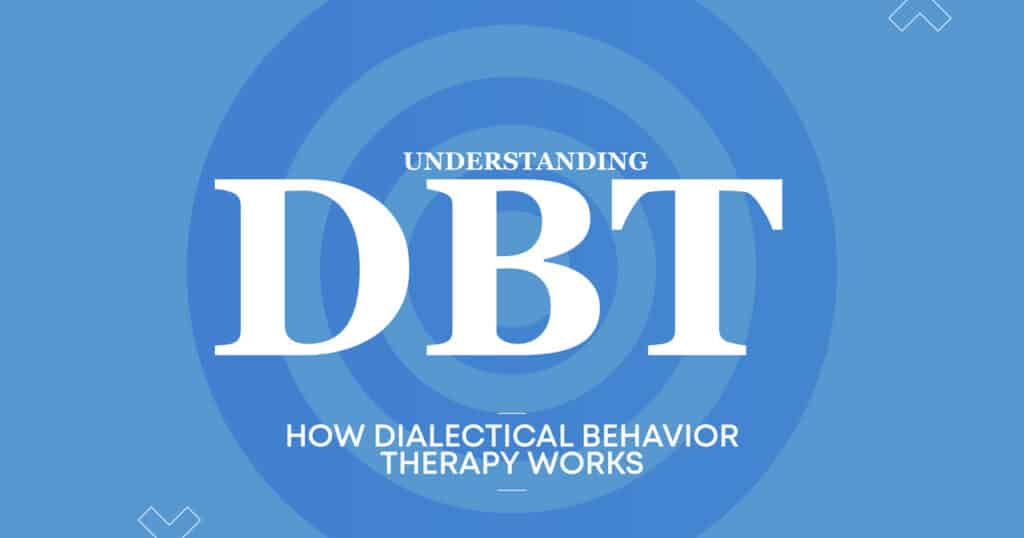Introduction Dialectical Behavior Therapy Works
Ever feel like your emotions are running the show, leading you down paths you didn’t intend to follow? If so, you’re not alone. Many people struggle with managing their emotions, leading to difficulties in their personal and professional lives. Enter Dialectical Behavior Therapy (DBT), a therapeutic approach designed to help individuals navigate their emotional landscapes more effectively. Understanding DBT—how DBT works—can provide valuable insights into managing emotional turbulence and fostering a more balanced life.
What is Dialectical Behavior Therapy (DBT)?
Dialectical Behavior Therapy (DBT) is a type of cognitive-behavioral therapy that was originally developed by Dr. Marsha Linehan in the late 1980s to treat borderline personality disorder. However, its applications have since expanded to include a variety of cognitive health issues, such as depression, anxiety, eating disorders, and substance abuse. It focuses mainly on providing therapeutic skills in four key areas: mindfulness, distress tolerance, emotion regulation, and interpersonal effectiveness.
The Core Components of DBT
Mindfulness is the cornerstone of DBT. It involves being fully present in the moment and aware of your thoughts, feelings, and surroundings without judgment. This practice helps individuals become more attuned to their internal experiences and external environment, promoting a sense of calm and control.
- Mindfulness Techniques:
- Deep breathing exercises
- Body scans
- Guided meditation
- Observing thoughts without reacting
- Distress Tolerance
Distress tolerance skills are essential for coping with painful or challenging situations. Instead of trying to change the distressing situation, these skills help individuals tolerate and survive crises without worsening.
- Distress Tolerance Strategies:
- Distracting yourself with activities
- Self-soothing using the five senses
- Improving the moment through relaxation techniques
- Evaluating the pros and cons of tolerating distress versus acting impulsively
- Emotion Regulation
Emotion regulation involves understanding and managing intense emotions that can lead to impulsive actions. Individuals can reduce emotional vulnerability and improve their ability to handle emotional experiences by identifying and labeling emotions accurately.
- Emotion Regulation Skills:
- Identifying and labeling emotions
- Increasing positive emotional events
- Reducing vulnerability to negative emotions
- Managing extreme emotions with healthy coping mechanisms
- Interpersonal Effectiveness
Interpersonal effectiveness skills help individuals navigate their relationships more effectively. These skills involve asserting needs, setting boundaries, and maintaining self-respect while interacting with others.
- Interpersonal Effectiveness Techniques:
- DEAR MAN (Describe, Express, Assert, Reinforce, stay Mindful, Appear confident, Negotiate)
- GIVE (Gentle, Interested, Validate, Easy manner)
- FAST (Fair, Apologies, Stick to values, Truthful)
The Structure of DBT
Individual Therapy
In individual therapy sessions, clients work one-on-one with a DBT-trained therapist. These sessions focus on addressing the client’s specific issues, applying DBT skills to real-life situations, and developing a care plan tailored to their requirement.
Group Skills Training
Group skills training sessions are an integral part of DBT. These weekly sessions teach clients the four core DBT skills: mindfulness, distress tolerance, emotion regulation, and interpersonal effectiveness. Group settings provide a supportive environment where individuals can learn from each other’s experiences and practice new skills.
Phone Coaching
Phone coaching allows clients to access their therapist between sessions for additional support. This allows clients to receive guidance on applying DBT skills in real time during distress or crisis.
Therapist Consultation Team
DBT therapists participate in regular consultation team meetings to support each other and ensure they provide the best possible care. These meetings help therapists stay motivated, address challenges, and maintain adherence to DBT principles.
The Benefits of DBT
Improved Emotional Regulation
One of DBT’s primary benefits is its ability to help individuals manage intense emotions more effectively. By developing skills in emotion regulation, clients can reduce the frequency and intensity of emotional bursts and impulsive behaviors.
Enhanced Interpersonal Relationships
DBT provides tools for improving communication, setting boundaries, and resolving conflicts. These skills help clients build and maintain healthier, more fulfilling relationships.
Increased Distress Tolerance
With distress tolerance skills, individuals can navigate stressful situations without resorting to harmful behaviors. This resilience is crucial for managing crises and maintaining stability.
Greater Mindfulness and Self-Awareness
Mindfulness practices help clients or patients become more aware of their thoughts, feelings, and behaviors. This heightened self-awareness fosters a sense of control and can lead to more intentional, thoughtful actions.
FAQs About Understanding DBT How Dialectical Behavior Therapy Works
How long does DBT treatment typically last?
DBT treatment usually lasts six months to a year, depending on the individual’s needs and progress. Some individuals may benefit from ongoing therapy for more extended periods.
Is DBT only for borderline personality disorder?
No, while DBT was initially developed for borderline personality disorder, it has been found effective for various cognitive health conditions, including depression, anxiety, eating disorders, and substance abuse.
Can DBT be done online?
Yes, many therapists offer DBT via teletherapy or online platforms, making it accessible to those who cannot attend in-person sessions.
How do I find a DBT therapist?
You can find a DBT therapist by searching online directories, asking healthcare providers for referrals, or contacting mental health organizations specializing in DBT.
What if I struggle with the skills taught in DBT?
It’s common to find some DBT skills challenging initially. Regular practice, patience, and support from your therapist can aid you in developing and strengthening these skills.
Real-Life Applications of DBT Skills
Managing Stressful Situations
Imagine you’re stuck in traffic, late for an important meeting. Instead of letting the frustration escalate, you use distress tolerance skills like deep breathing and mindfulness to stay calm and collected.
Navigating Difficult Conversations
You need to address a sensitive issue with a friend. Using interpersonal effectiveness skills, you prepare to express your concerns clearly and assertively while respecting your friend’s perspective.
Coping with Emotional Overwhelm
After a challenging day, you feel emotionally drained and on the verge of a breakdown. Employing emotion regulation skills, you identify your feelings, engage in a soothing activity, and remind yourself of positive affirmations.
Wrapping It Up
Understanding DBT—how Dialectical Behavior Therapy works—can be a transformative journey for those struggling with emotional regulation, interpersonal issues, and mental health challenges. DBT provides a comprehensive framework for managing intense emotions, improving relationships, and enhancing overall well-being. By committing to the process and practicing the skills consistently, individuals can lead more balanced and fulfilling lives.




